Turkey, Not Iran Is Regional Transport Hub Says MP
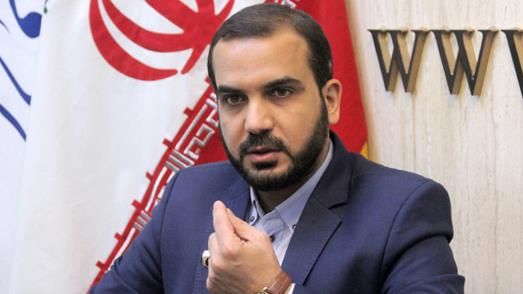
Iran has been supplanted by Turkey as the region’s transport hub despite Tehran’s ambitions, an Iranian MP has admitted.

Iran has been supplanted by Turkey as the region’s transport hub despite Tehran’s ambitions, an Iranian MP has admitted.
Mojtaba Yousefi said Monday the Persian Gulf countries and also the north of the region look to Turkey as the transportation hub.
Meanwhile Iran suffers from poor infrastructure that make a mockery of its ambitions in recent years to be the leader.
Yousefi said: “Out of more than 60 airports in Iran, less than 40 airports are operational and only one is an economic airport.”
The country’s roads and railways are in need of significant upgrades, while the ports are not equipped to handle the large volumes of cargo that would be necessary for Iran to become a regional hub. Furthermore, the airports are not up to international standards, most of the airplanes suffer from technical issues, and the air traffic control system is inadequate.
Political instability and economic sanctions mean the situation is highly unlikely to improve any time soon. The financial uncertainty has made it difficult for businesses to pour in the investment into infrastructure necessary for Iran to ever become a credible international transport hub.
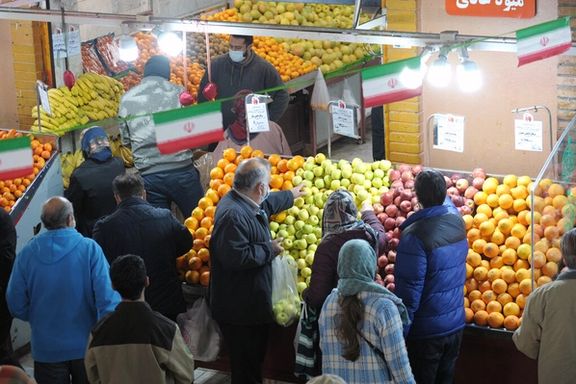
The high price of the new season’s crop of fruit is out of reach for Iranian shoppers, according to an industry leader.
The head of the fruit and vegetable sellers’ union of Iran, Esmail Moradian said on Monday that though the price of some items have fallen back, shoppers still cannot afford them.
Inflation in the fruit market is lower than some other sectors, but with consumers suffering plummeting purchasing power, many have held back from buying fresh fruits and prefer to wait for further price drops.
The price of watermelon has increased by a staggering 66.67%, and strawberries by 33.33%, Mehr news agency reports.
The cost of fruit in Iran has rapidly risen in recent years, making it increasingly unaffordable for ordinary people.
This situation has been made worse by a weak economy, sky-rocketing inflation, and a depreciating currency. The result is a nutrition and health crisis, as ordinary families miss out on fresh fruits and vegetables.
The situation is even worse for those on low incomes, who may not be able to afford fruit at all.
The Iranian economy has been deeply unstable for the past few years, with a sharp decline in the value of the rial and a general economic downturn. This has had a major impact on the price of food items, with inflation reaching a staggering 75 percent for some items.
The crisis has pushed many households below the poverty line.
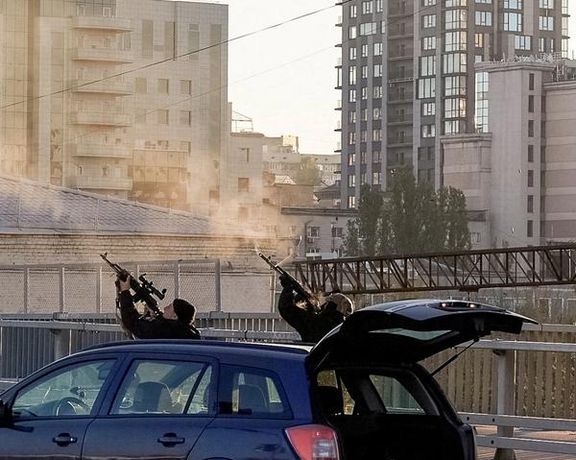
Four Iranian-made kamikaze drones launched by Russia have been shot down by Ukraine’s air defense, according to Kiev officials.
Ukraine's Air Force Command says it brought down the Shahed pilotless vehicles overnight, along with a Russian-made Orlan-10 drone.
The clash took place in the air over the northeast of Ukraine.
Russia has repeatedly used Iran-made drones as well as guided bombs in its invasion of Ukraine.
Russian long-range missile stockpiles have dwindled after repeated attacks on civilian targets since October when Moscow also began using hundreds of Shahed suicide drones, supplied in defiance of sanctions against weapons sales to the Moscow regime.
Iran first denied it had supplied drones to Russia but in early November foreign minister Hossein Amir-Abdollahian admitted the deliveries, but claimed they were sent before the Russian invasion.
There have been intelligence reports that Tehran might be planning to also supply long-range missiles to Russia.
The US and its NATO allies have strongly condemned Iran’s drone deliveries to Russia. Washington, which has stopped nuclear talks with Tehran, has indicated that it expects the deliveries to stop before any further negotiations take place.
Iran’s Supreme Leader Ali Khamenei completely denied Iran’s involvement in the war during a speech he delivered in mid-March.
Ukraine has had increasing success in shooting down the relatively slow-flying Iranian drones. On December 5, the military said it had downed 60 of 70 Shahed drones, but Kiev continues to request reinforcements to its air defense systems from the West.
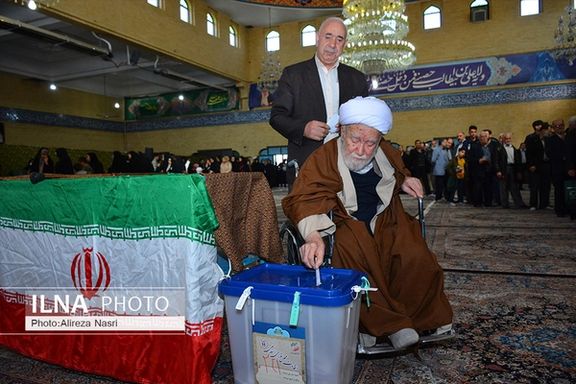
Ten months before the next parliamentary elections in Iran, regime politicians are concerned about arbitrary disqualification of candidates.
The Guardian Council, a constitutional body controlled by Supreme Leader Ali Khamenei, disqualified hundreds of candidates in the 2020 legislative elections and barred key presidential candidates in the 2021 presidential vote. The purpose was to hand over government control to Khamenei’s hard-line supporters.
The most prominent individual disqualified by the Council in 2021 was former parliament speaker Ali Larijani, considered a moderate conservative.
Last week, Larijani issued a statement denying any intention to run in the March 2024 parliamentary election, alluding to what transpired in 2021.
It should be noted that in the 44-year history of the Islamic Republic only regime insiders, loyal to the principle of clerical rule have been allowed to run for office. Those who had any ideas of secularism were persecuted and many had to leave the country.
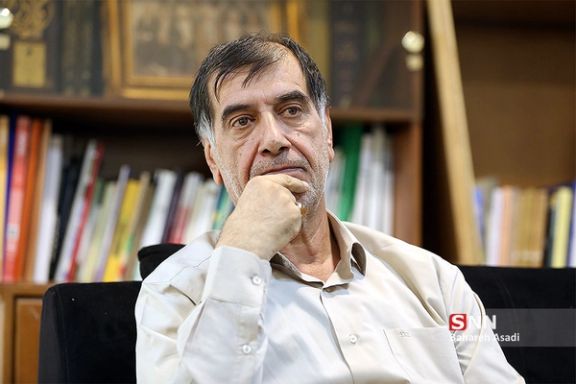
Explaining the Guardian Council's intervention in the elections through arbitrary vetting, prominent conservative politician Mohammad-Reza Bahonar told Entekhab news website on Sunday that one of the reasons the Council offered for Larijani’s disqualification was that he had good relation with former President Hassan Rouhani, despised by Khamenei loyalists.
Bahonar said: "If we are looking for high turnout in the upcoming elections, we need to open the political atmosphere rather than calling for our rivals' disqualification." He added that the country's officials should guarantee a healthy, secure and competitive election.
Meanwhile, Bahonar who was a lawmaker for seven 4-year terms, said the parliament dominated by hardliners should not be involved in revising election laws, as current lawmakers tend to make sure that no one other than themselves are allowed to run.
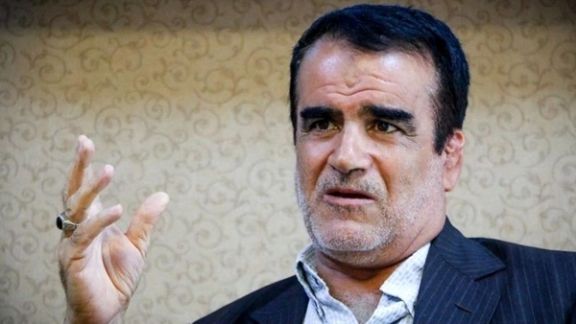
In another development, reformist activist Ali Mohammad Namazi told Rouydad24 website that what Larijani has said about purging or purification of political atmosphere by Iran's hardliners alluded to the Guardian Council's vetting of election candidates.
The “strict filtering” by the Council, he said, was meant to bar everyone other than conservative "insiders" from getting elected. "So, what Larijani said meant: In this situation we will skip the trouble of nominating ourselves as candidates and save the hardliners the trouble of getting rid of unwanted candidates," Namazi said.
He added that the regime's leader should know that this situation is not desirable and will push the country toward a political breaking point. Most Iranian politicians believe that political impasse already exists.
Another reformist figure who commented on the issue of vetting and the Guardian Council's intervention in Iranian elections was reformist journalist and activist Ahmad Zeidabadi who spoke with Khabar Online website on Sunday.

Zeidabadi said that Larijani's comments were meant to convey the message that he is not going to be deceived once again by playing according to the rules laid down by hardliners.
According to Zeidabadi, Larijani has called for returning to the political processes before the 2021 election, that is allowing various political factions within the system to nominate their candidates for the presidency and giving them equal chance to garner the voters' support.
Meanwhile, answering a question by the conservative Nameh News website that asked why former President Mohammad Khatami no longer tells the people to take part in elections in the same way he did before, former lawmaker Jalal Jalalizadeh said such a call will be effective only if the people are assured that there will be a free and fair election. In the current situation, even if Khatami calls on the people to go to the polls, no one will listen to him, Jalalizadeh said.
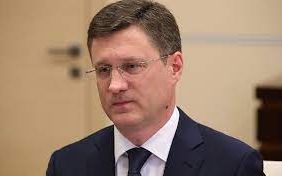
Russian Deputy Prime Minister Alexander Novak will visit the Islamic Republic of Iran on May 16, Iranian local media reported on Sunday.
Novak is expected to meet with Iranian Oil Minister Javad Owji and Central Bank Governor Mohammad-Reza Farzin during his two-day stay in Tehran.
He will also attend the 27th International Oil, Gas and Petrochemical Exhibition opening in Tehran on May 17.
There were no details provided about the Russian delegation or topics of the upcoming agenda.
Iranian Deputy Oil Minister Ahmad Asadzadeh said on April 25 that Novak and Russian Central Bank Governor Elvira Nabiullina will visit Iran in May for trade and economic agreements.
As tension between the United States and Iran have increased since last year, Tehran and Moscow have been trying to boost bilateral relations.
As nuclear talks broke down with Iran last September and Russia's invasion of Ukraine dragged on, the United States and Europe imposed more sanctions on Iranian and Russian entities and the two pariah states expanded their ties.
In July, the National Iranian Oil Company (NIOC) and Russian gas company Gazprom signed a memorandum of understanding (MoU) worth $40 billion. NIOC and Gazprom CEOs signed the deal on the day Russian President Vladimir Putin arrived in Tehran for a summit with his Iranian and Turkish counterparts.
There were many projects covered by the MoU, including expanding the Kish and North Pars gas fields, improving the South Pars field, developing six new oilfields, increasing gas and product swaps, completing various liquefied natural gas (LNG) projects, and building gas export pipelines, to name a few.
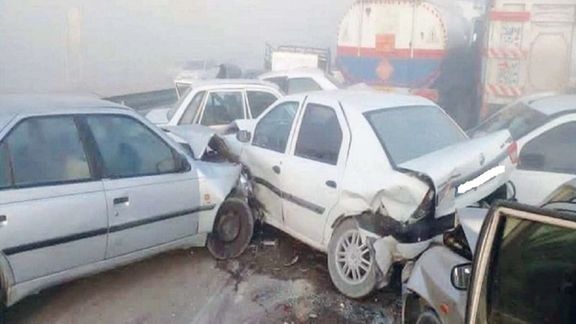
Traffic police in Iran says in the last 10 years, the quality of domestically produced cars has not improved “even ne percent.”
Deputy Traffic Police Chief, Taymour Hosseini told Tasnim news agency on Sunday that Pride and Peugeot 405 still cause fatal accidents although their production has stopped. Both cars are copies of much older foreign cars produced with inferior quality.
“The authorities have announced the production of Pride and Peugeot 405 has stopped, but in practice similar cars are being produced,” he added.
According to Hosseini, the number of people killed in road accidents has even increased in recent years.
"According to figures announced in the past Iranian year [ending on March 20], 19,491 people lost their lives in traffic accidents, which shows a 16% increase compared to the previous year,” he underlined.
Meanwhile, Kamal Hadianfar, Traffic Police Chief, said in a press briefing on Sunday that "Last year, two to three people died in car accidents every hour, while 25 others were injured.”
Many Iranian officials and authorities, including President Ebrahim Raisi, are critical of the local car industry, with pundits blaming a “mafia-like” influential group behind a ban on car imports, to eliminate competition.
Hadianfar once described Iranian cars as “death wagons”, and criticized manufacturers for importing parts from China, saying there is no effective quality control.
Iran's automotive industry, the county’s largest after oil and gas, employs 700,000 workers.
With around 20,000 annual deaths, Iran has a poor traffic safety record. According to World Health Organization (WHO) data published in 2018, road traffic accident deaths in Iran reached 21,831 or 6.5 percent of all fatalities.